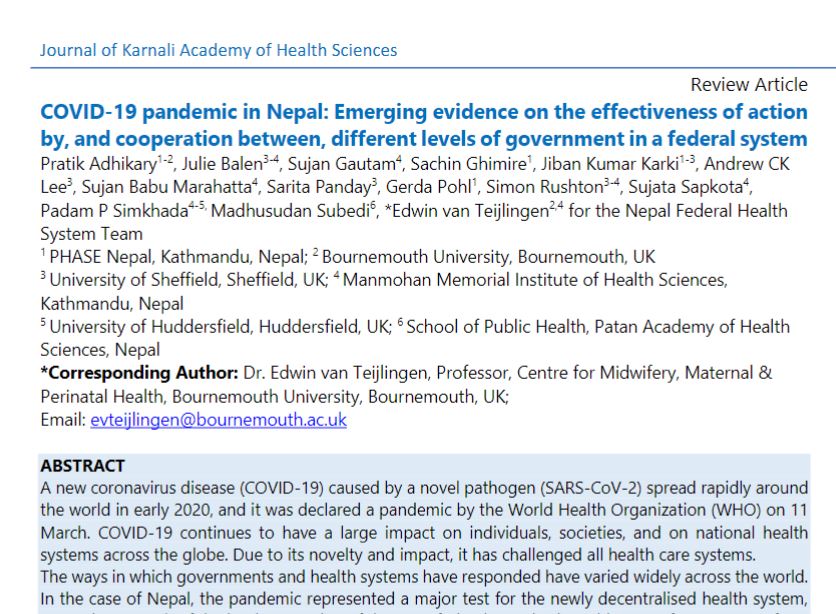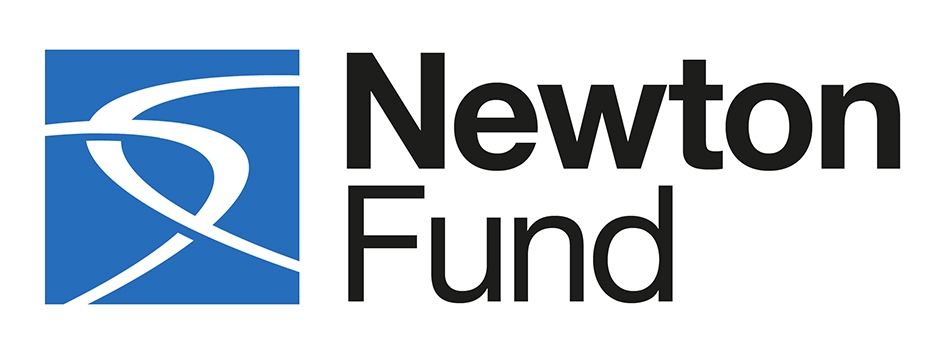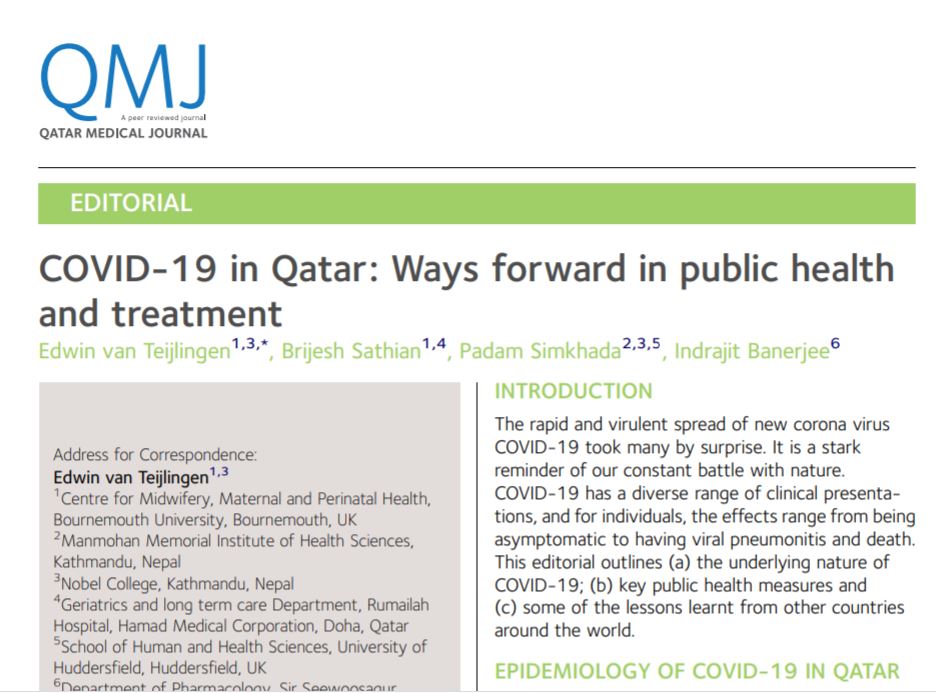Happy New Year!
We’re back into busy times, to keep things manageable for colleagues we will try and keep our updates focussed on the main news and keep the wider interest elements short on commentary, with links that can be followed for more detail.
What’s in store for 2021
A New Year often sees predictions made about the shape of the year ahead. A lot was announced, not least by the OfS, in the last quarter of 2021 so it will be a busy year. BU staff can read our latest horizon scan here.
Research Professional offer EU 2021: eight areas to watch predicting what the next 12 months may mean for research policy.
Horizon Europe research programme access
Four years on and the UK and EU have agreed a post-Brexit trade deal with access to a number of programmes including participation in Horizon Europe through associate membership between 2021-2027. However, the UK has chosen not to participate in the Erasmus student exchange programme due to cost concerns.
While access to the EU programmes has been granted the details still have to be negotiated individually per programme (in part this is because the regulatory aspects of some programmes are still being developed). This Research Professional article has useful detail on the programmes the UK can associate with. And Wonkhe explain: as in everything else to do with the EU from now on the UK may participate in the governance of programmes as an observer, and in expert groups, but will not be included in any formal decision-making processes associated with each programme.
The Horizon Europe budget is valued at 95.5 billion Euros. The budget is bigger than the last round, however, the remit it must cover is bigger too. Research Professional write: Horizon Europe has a fully fledged European Innovation Council for the first time, which will support the growth of R&D-based businesses. The programme will also lead nations and organisations in funding R&D missions intended to achieve objectives in areas such as cancer and climate change.
On the ‘other programmes’ Research Professional report that Besides Horizon Europe and Erasmus+, the EU will launch or continue a variety of other programmes that will support research and innovation. Its regional funds will continue to provide tens of billions of euros for disbursement by local governments, while the launch of dedicated space, digital, defence and health programmes will provide targeted support for these fields in ways that, the bloc hopes, will chime with its main R&D programme.
Boris Johnson: The deal means certainty for our scientists who will be able to continue to work together on great collective projects…Because although we want the UK to be a science superpower, we also want to be a collaborative science superpower. We will be able to set our own standards, to innovate in the way that we want, to originate new frameworks for the sectors in which this country leads the world, from biosciences to financial services, artificial intelligence and beyond.
Research Professional (RP): Analysts will be poring over the texts as soon as they are released to see exactly what kind of access to EU collaboration the deal provides, and how much it will cost the UK. It has previously been suggested that the UK may be up to £3bn out of pocket by paying into the Horizon programme, and that the money to do so would come out of the domestic R&D budget. RP go on to say: even with the deal, there are bound to be setbacks for R&D and education ties.
Turing Mobility Scheme
It was widely trailed by media sources in late December that Erasmus was off the table. Nearly 10,000 UK students participated in Erasmus during 2018-19. The PM stated the Erasmus deal was extremely expensive (costing £2 billion more than we’d receive back) and instead the UK will launch its own Turing scheme supporting study and work placements abroad backed by £100 million.
It is intended to support 35,000 students in schools, colleges and universities for placements and overseas exchanges from September 2021. It has a social mobility aspect and will target students from disadvantaged areas to improve accessibility to the scheme and opportunities. The new scheme offers up a wider range of countries than could be accessed through Erasmus+. Applications will open early in 2021 and organisations are promised funding to administer the scheme as well as grants for the students’ international experience. Providers are told to begin preparation with international partners as soon as possible. Wonkhe: it has already been noted that a standalone scheme that requires individual institutions to negotiate the terms of exchanges with their counterparts in other countries is a much less efficient way of facilitating study abroad than a continent-wide programme – an issue that may be addressed in the terms of reference for the scheme.
Universities Minister, Michelle Donelan, praises the new scheme highlighting the access to new countries and the disadvantaged element, and raising issue with aspects of Erasmus+: Erasmus’s benefits went overwhelmingly to students who were already advantaged. The language barrier meant that it was very hard for students not already studying a modern foreign language to take part, to flourish at their chosen university and get the most out of the academic experience. A 2006 study found that of those taking part in Erasmus from the UK, 51 per cent were from families with a high or very high income. There are no details on proportions of Turing funding to be allocated to disadvantaged backgrounds yet, however, it is assumed there will be a balance. Donelan concludes: none of this is to decry Erasmus+… the fact is that it is simply too limiting for the global Britain that we aspire to. Of the hundred best universities in the world in the QS World Rankings, only twelve are in the EU. If we have stayed with Erasmus+ it would have cost several hundreds of millions of pounds to fund a similar number of exchanges, not have been global in nature and continued to deliver poor participation rates for young people from deprived backgrounds.
Education Secretary Gavin Williamson said: We have designed a truly international scheme which is focused on our priorities, delivers real value for money and forms an important part of our promise to level up the United Kingdom. These opportunities will benefit both our students and our employers, as well as strengthening our ties with partners across the world.
Vivienne Stern, director of Universities UK International: While the announcement that the UK will now not be participating in Erasmus+ is disappointing, we are pleased that the prime minister has committed to a new UK programme to fund global mobility. We now ask the UK government to quickly provide clarity on this Erasmus+ domestic alternative, and that it be ambitious and fully funded. It must also deliver significant opportunities for future students to go global which the Erasmus programme has provided to date.
She also stated: Evidence shows that students who have international experience tend to do better academically and in employment, and the benefits are greatest for those who are least advantaged.
An independent blogger for Wonkhe is more sceptical: It is doubtful that the Turing Scheme could match the success of Erasmus, which is after all, a 33-year-old programme considered by many to be the most positive endeavour to come from the EU. The blog – Will Turing be a good enough exchange? – also disagrees with the cost figures – Offsetting these receipts [educational exports revenue] against the entry cost as a non-EU Erasmus Programme country, the UK receives a net return on far more than it contributes. The article states the £100 million won’t go far – It…might just be sufficient for the first year of the scheme while Europe is still suffering the impact of Coronavirus, but in a post Covid world, this will be spread thin at best… this is largely in part to the growing appetite for UK students to study or train abroad… The overall number of mobilities throughout the wider education sector already stands near the 35,000 mark, only made possible through funding, greater than £100 million, that is already allocated to the UK through the Erasmus+ programme. DfE’s allocation for the Turing in 2021 does not account for this.
The blog continues: Turing also does not account for the extra expenses involved in international travel… Expanded opportunities for international mobilities are welcomed in principle, but in practice, heavy promotion of international mobilities may result in astronomical travel expenses, visas fees and in the case of Anglophone destinations, steep cost of living – all which require a far greater investment than DfE’s promised £100 million… What’s also striking is that the total funding isn’t a sufficient amount to fund the additional support mechanisms…needed to encourage students from non-traditional backgrounds… Institutions may be placed in the uncomfortable dilemma of offering fewer overall opportunities to students or targeted places for widening participation students, as a result of the restricted funding. If this is an area of interest do read the full blog as other barriers for both outgoing and incoming students are highlighted.
Finally, Wonkhe note that the UK has historically imported Erasmus+ students from the rest of the EU at twice the rate it exports UK students to other EU destinations.
Parliamentary Activity
These Lords Oral questions on Turing provide some additional clarification. Lord Parkinson stated: We are working directly with educational institutions to make sure that people are able to take up those opportunities and we will provide additional funding for disadvantaged students to cover, for instance, the cost of passports or visas, or for students with disabilities to undertake preparatory visits to make sure that all the necessary accommodations can be made for them. The side-stepping in response to questions on inbound students was notable. This PIE news article also highlights that Turing seems destined to fund outbound opportunities only.
Returning to the Lords oral questions, specifically on the HE sector:
Q – Lord Patel – what assessment have the Government made of the impact on universities of losing a significant amount of finance on inward-bound exchange schemes, because it will now cost money for them to set up exchanges?
A – Lord Parkinson of Whitley Bay: We have been liaising with the higher education sector through groups such as the Russell Group and MillionPlus as the negotiations were ongoing and as we developed the Turing scheme, which is the back-up to it.
An Early Day Motion in Parliament championed by the Scottish National Party noted that the Turing scheme will not replicate many aspects of the Erasmus+ scheme such as youth work, adult education, sport, culture and vocational training.
There has been a flood of parliamentary question on the Turing scheme. Below is a small selection – all are due to be answered on Monday 11 January.
Regulatory – OfS Chair
Education Secretary of State Gavin Williamson has earmarked Baron James Wharton to be the next Chair of the Office for Students. If he is approved he’ll commence the role in March 2021.
Wharton currently sits on the Conservative benches in the House of Lords (he was given a life peerage by the PM in September 2020). Previously he was a Conservative MP (2010-17) including roles as an Under-Secretary of State (local Government and international development). After his stint as an MP he was instrumental in Boris’ leadership campaign acting as his Campaign Manager. Prior to his political career Wharton was a solicitor; there is little in his career which suggests an interest in Education. Here Research Professional highlight criticism of the Government that the interview panel was dominated by Conservative leaning. Wharton will appear before the House of Commons education committee who will consider his appointment and publish recommendations (if necessary). Williamson has the final say on the appointment.
Admissions
The UCAS deadline has been pushed back to 29 January to account for Covid disruption and to support applicants with limited access to digital devices.
Most of the admissions related news this week relates to the cancellation of GCSE, A and AS level exams in England and Northern Ireland (Wales and Scotland had already abandoned exams). Teacher assessment will form the basis of final grades. The DfE and Ofqual have collaborated to plan the alternative arrangements and contingency options and the DfE have promised a consultation to fine-tuned the details with the sector. Dods have provided a summary of the main points in the Commons debate on the cancellation of exams here.
Vocational and technical qualification assessment will continue in January where it is safe to do so. The DfE and Ofqual will make arrangements for those unable to hold the January assessments and agree an approach to vocational and technical qualification final assessments moving forward.
During the Commons statement Education Select Committee Chair, Robert Halfon, asked Gavin Williamson to confirm that the centre-assessed grading (CAG) system would maintain standards and provide a level playing field for disadvantaged children, with a fair appeals process. He also asked if the Department would make sure independent assessors – perhaps retired teachers and Ofsted inspectors – were available to provide a check and balance on CAGs.
Dods have a podcast – Teacher’s pet or Class Clown – on the school closure.
Williamson responded – he would be happy to work with Halfon and the Education Committee on any additional actions that can be taken to ensure fairness, and would certainly take on board his idea to bring in retirees as independent assessors
Robert Halfon (Chair, Education Committee) also made the news earlier in the week when he spoke frankly about the Government’s performance during Radio 4’s Woman’s Hour on Tuesday. Asked why the sudden school closure one day after pupils returned he stated he didn’t know – he’d received messages throughout the weekend on schools, mainly being assured that they would remain open, transmission rates were marginal and the risk to teachers was low. He went on to say that Government needed to have a consistent policy that didn’t change every few days. When asked whether the Education Secretary Gavin Williamson was fit for the role, Halfon said he made a point of not getting drawn on particular personalities but commented that it’s “the whole Government,” and described it as “a shambles”.
Some sources this week have noted that the Government’s Skills White paper (one of Williamson’s flagship ministerial pieces) still hasn’t been published and suggested that the Government is biding its time as Williamson’s competence is questioned from some quarters.
Finally, many students improved their A and AS level grades during the autumn 2020 exams.
Research
Science, Research and Innovation Minister, Amanda Solloway, announced £213 million for UK science facilities upgrades, including microscopes, super computers and testing facilities for innovative technologies and blast labs for terror attacks. The fund aims to enable researchers to respond to global challenges such as COVID-19 and climate change. The funding is part of the Government’s R&D Roadmap sources and allocated against specific projects with facilities with Scotland receiving a good proportion of the funding. Breakdown:
- £29m to upgrade and replace UK scientific equipment
- £25m to support the installation of highly sophisticated testing facilities at leading UK universities
- £34m for data and digital research infrastructure relationships
- £33.5m to upgrade facilities of UK scientific councils
- £15m for the Capability for Collections Fund
Science Minister Amanda Solloway said: The response from UK scientists and researchers to coronavirus has been nothing short of phenomenal. We need to match this excellence by ensuring scientific facilities are truly world class, so scientists can continue carrying out life-changing research for years to come as we build back better from the pandemic.
From the world’s most detailed microscopes tracking disease to airborne drones monitoring greenhouse gas emissions, our investment will enhance the tools available to our most ambitious innovators across the country. By doing so, scientists and researchers will be able to drive forward extraordinary research that will enable the UK to respond to global challenges such as achieving net zero carbon emissions by 2050.
Artificial Intelligence: The UK AI Council (an independent expert committee) published the AI Roadmap which makes recommendations to inform the Government’s strategic direction on Artificial Intelligence, including a National AI Strategy. They call on Government to ‘double down’ on the AI recent investment and look to the horizon and be adaptable to disruption. The 16 recommendations are here.
Inquiries and Consultations
Click here to view the updated inquiries and consultation tracker. Email us on policy@bournemouth.ac.uk if you’d like to contribute to any of the current consultations.
Other news
Student Poll: A YouGov poll of students describes Coronavirus as negatively effecting motivation and self-discipline for some, alongside familiar messages for mental health and loneliness. Also:
- Despite many news stories of universities imposing draconian measures on students, or failing to provide adequate nutrition to those forced to isolate, a majority of students (58%) say their university has handled student safety and wellbeing well during the coronavirus crisis. Just over a third (36%) say their university dealt with the issue badly.
- By contrast, over four in five students (85%) say the UK government’s response has been poor, while only one in nine (11%) say it has done a good job.
- Full results here, with University/Government judgements starting from page 28.
- Note – students were surveyed late December, before the current lockdown announcement.
Youth opportunity: The Learning and Work Institute’s final Youth Commission Report (Number 6) – Unleashing Talent: Levelling up opportunity for young people was published. It examines how to improve education and employment opportunities for 16-24 year olds and calls for a 10 year strategy. Recommendations relevant to HE are:
- three quarters of young people to gain A level equivalent qualifications by age 25 (currently two thirds do)
- Reversing the decline in apprenticeships – aiming for one in three young people to take part in an apprenticeship and for this to galvanise action in the same way the 50% target for higher education did
- Diversify HE routes – Focus on growing Higher Technical routes and HE access at all ages. Widen access by introducing maintenance grants of around £3,000 per year and evaluating access initiatives
- Supporting young people to combine work and study through a new Youth Allowance in Universal Credit
The reforms would cost an extra £4.6bn per year, focusing on investing more in technical education and employment opportunities. Before the pandemic, half of the £20bn spent each year on education and employment went on higher education.
Non-continuation: HEPI published A short guide to non-continuation in UK universities. Summary here.
HE for the Future: Advance HE blog on reshaping HE for the future. The blog discusses how the fourth industrial revolution, growth of artificial intelligence and the pandemic are significantly changing the employment landscape.
- Thought leaders have recognised that the emerging skills landscape cannot be supplied by a one-directional pipeline between secondary education and professional work.
- The ‘art of the possible’ has been transformed over the last nine months. Engaging, participatory high quality higher education has been taking place across disciplinary, institutional and geographical boundaries, demonstrating that it is possible to motivate and engage students and develop the competencies for virtual working and the habits of mind required for life-long learning in an online environment. This has raised questions about whether the three-year on-campus residential degree is fit for purpose and provides value for money. The proliferation of alternative opportunities including degree apprenticeships and flexible modes of accredited delivery, as well as open access courses and certificated programmes from ‘big-tech’ companies, such as Google, Amazon and Apple is encouraging students to question the cost and the value of the predominant model of higher education.
- The pandemic has highlighted that most higher education institutions need to enhance their capacity to deliver flexible and resilient education systems that would meet student expectations and the accelerating social and economic transformations that wider society anticipates. This requires a ‘rethink’ not only of what and how we teach but also what shape HEIs need to take to deliver on the changing demands of students, employers and society.
The blog goes on to promote Advance HE’s work and online seminars on the topic.
Medical training expansion: The Royal College of Physicians call on the Government to expand the number of medical training opportunities. Our summary is here.
Significant appointments: This link details all the recent appointments to key bodies such as the Student Loans Company board, OfS, Ofqual, Children’s Commissioner, social mobility, FE, and apprenticeships.
Online skills: The Government has launched the ‘An Hour to Skill’ campaign aiming to help more people boost their skills from home, support their mental wellbeing and help build a better working future. It urges people to set aside one hour a week for online learning by taking a free course from The Skills Toolkit. Demos research shows that one in three people have used online learning to help them get a better job, and that on average, online learning can boost annual pay by £3,640 too. The campaign builds on the Government’s Plan for Jobs and initiatives aiming to shrink the skills gap across the UK, and allowing Brits to re-skill and up-skill for the future of work.
Subscribe!
To subscribe to the weekly policy update simply email policy@bournemouth.ac.uk. A BU email address is required to subscribe.
External readers: Thank you to our external readers who enjoy our policy updates. Not all our content is accessible to external readers, but you can continue to read our updates which omit the restricted content on the policy pages of the BU Research Blog – here’s the link.
Did you know? You can catch up on previous versions of the policy update on BU’s intranet pages here. Some links require access to a BU account- BU staff not able to click through to an external link should contact eresourceshelp@bournemouth.ac.uk for further assistance.
JANE FORSTER | SARAH CARTER
VC’s Policy Advisor Policy & Public Affairs Officer
Follow: @PolicyBU on Twitter | policy@bournemouth.ac.uk
 Based on UK-EU Trade and Cooperation Agreement (the TCA) the UK will be HE Associated Country. The association secures participation of UK and EU entities in Horizon Europe Programme on equivalent terms. This will ensure that via the Horizon Europe Programme UK organisations have access to R&I funding, infrastructure and markets; according to the TCA, UK organisations can lead projects and UK experts can take part in evaluations. It also provides association to COST programme and the UK plays an active role in the ongoing governance and development of the HE programme.
Based on UK-EU Trade and Cooperation Agreement (the TCA) the UK will be HE Associated Country. The association secures participation of UK and EU entities in Horizon Europe Programme on equivalent terms. This will ensure that via the Horizon Europe Programme UK organisations have access to R&I funding, infrastructure and markets; according to the TCA, UK organisations can lead projects and UK experts can take part in evaluations. It also provides association to COST programme and the UK plays an active role in the ongoing governance and development of the HE programme. I believe, this is fantastic news for the whole UK academic community and wish you success in applying for research funding.
I believe, this is fantastic news for the whole UK academic community and wish you success in applying for research funding.

 Every BU academic has a
Every BU academic has a  By clicking on this box, on the left of the Research Blog home page just under the text ‘Funding Opportunities‘, you access a
By clicking on this box, on the left of the Research Blog home page just under the text ‘Funding Opportunities‘, you access a  Interreg has been one of the funding sources where BU academics have been successful during previous years. RDS have had a number of enquiries from academics regarding our eligibility to apply for Interreg funding after the UK has left the EU. The answer may be both – yes and no.
Interreg has been one of the funding sources where BU academics have been successful during previous years. RDS have had a number of enquiries from academics regarding our eligibility to apply for Interreg funding after the UK has left the EU. The answer may be both – yes and no. The next EU budget period is designed for 2021-2027; if Interreg calls for proposals are to be funded from the EU 2021-2027 budget, UK participants will not be eligible for EU funding.
The next EU budget period is designed for 2021-2027; if Interreg calls for proposals are to be funded from the EU 2021-2027 budget, UK participants will not be eligible for EU funding. A vacancy has arisen for one of the two posts of University Representative, the leaders of the Research Staff Association. This is not a faculty-specific post, any eligible person from any faculty can apply.
A vacancy has arisen for one of the two posts of University Representative, the leaders of the Research Staff Association. This is not a faculty-specific post, any eligible person from any faculty can apply. The role and social importance of TV and film during this pandemic has been much commented on. But how healthy is this industry? The good news is that this sector has been expanding at more than three times the rate of the wider economy, generating an annual trade surplus of almost £1 billion. The less good news is that this expansion has been at the expense of its most valuable resource – its skilled workforce. The preliminary report from our State of Play survey, undertaken shortly
The role and social importance of TV and film during this pandemic has been much commented on. But how healthy is this industry? The good news is that this sector has been expanding at more than three times the rate of the wider economy, generating an annual trade surplus of almost £1 billion. The less good news is that this expansion has been at the expense of its most valuable resource – its skilled workforce. The preliminary report from our State of Play survey, undertaken shortly 




 UK Research and Innovation (UKRI) is calling on postdoctoral researchers, research associates and other early career researchers to join its new Early Career Researcher Forum.
UK Research and Innovation (UKRI) is calling on postdoctoral researchers, research associates and other early career researchers to join its new Early Career Researcher Forum.












 Fourth INRC Symposium: From Clinical Applications to Neuro-Inspired Computation
Fourth INRC Symposium: From Clinical Applications to Neuro-Inspired Computation Writing policy briefs
Writing policy briefs Upholding Excellence: The Concordat to Support Research Integrity
Upholding Excellence: The Concordat to Support Research Integrity Today’s Documentation Will Serve Tomorrow’s Justice
Today’s Documentation Will Serve Tomorrow’s Justice ECR Funding Open Call: Research Culture & Community Grant – Application Deadline Friday 12 December
ECR Funding Open Call: Research Culture & Community Grant – Application Deadline Friday 12 December MSCA Postdoctoral Fellowships 2025 Call
MSCA Postdoctoral Fellowships 2025 Call ERC Advanced Grant 2025 Webinar
ERC Advanced Grant 2025 Webinar Horizon Europe Work Programme 2025 Published
Horizon Europe Work Programme 2025 Published Horizon Europe 2025 Work Programme pre-Published
Horizon Europe 2025 Work Programme pre-Published Update on UKRO services
Update on UKRO services European research project exploring use of ‘virtual twins’ to better manage metabolic associated fatty liver disease
European research project exploring use of ‘virtual twins’ to better manage metabolic associated fatty liver disease